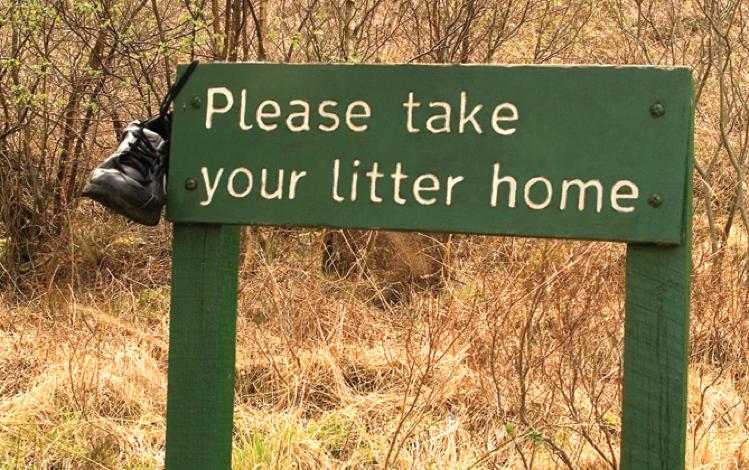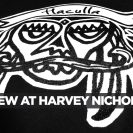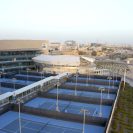I took a few days off recently to enjoy a brief hiatus from a decidedly hectic urban environment and went to the seaside in search of fresh air, away from the polluted and smog infested city. The season is still not in full swing so the beaches were almost deserted. I took my daughter to the edge of the water where the waves met the land and was met by the sea lapping gently at the shore.
I looked to my left and to my right, and realized that the beach was positively riddled with litter as far as I could see in either direction; plastic bags, wrappers, glass, some half buried in the sand, others freshly deposited. The sea was patiently and relentlessly returning the refuse we have so magnanimously dumped in it. It was a powerful reminder of the fact that the earth is constantly restoring itself as well as its astonishing resilience over the course of its existence. It will patiently and unwaveringly self heal.
The observable pattern is that our planet first incorporates and then returns whatever is introduced into its system, with interest. Consider the tiny seed that grows into a powerful, fruit laden tree. You plant a small, shapeless blob (agriculture is not my forte) and wait. It grows into something much greater than it originally was. We can see this, yet we extract what we need and reinsert it in toxic forms into the ecosystem, based on the (mis)understanding that we are somehow outside of it, and we bask in the certainty that we can mitigate any negative consequences of our actions by hiding the garbage away where no one can see it. This is the equivalent of sweeping dust under a rug and proclaiming the house to be dust free.
Now to be fair, many of us are tired. We have been endlessly harangued about how if we bought a hybrid car (for example) we would save the environment and how our air conditioners are allegedly causing the spontaneous combustion of pelicans in some remote island somewhere, and how if we bought this particular brand of car, we would really be saving those albatrosses. Also, something about whales. It is beginning to sound eerily similar to proselytizing, which drives our collective egos to adopt a defensive attitude.
That does not negate the reality of the matter that we are not treating the system with the respect it deserves, and for that we pay the price; we pollute the air, and then we are startled by the incidence of respiratory problems. We dump waste into the oceans, and express astonishment at the rising levels of toxins in our water (which we have to spend resources to purify). We poison the very earth (how dramatic) where we grow our crops, and express surprise when our tomatoes try to kill us (by having high concentrations of toxins, not by mutating into killer vegetables). The pattern here should be fairly easy to identify, especially given our inherited predisposition to believing in patterns; Michael Shermer in his very informative Ted Talk pointed out that we evolved the tendency to believe in patterns because those who erred by identifying false positives survived more often than those who erred by identifying false negatives (those people who believed that a rustle in the grass was a dangerous predator but were wrong lived, while those who believed that a rustle in the grass was the wind but turned out to be wrong became a midday snack).
While our actions will undoubtedly have effects on the planet, the main danger we pose is not to the earth, which despite our best efforts will more than likely end up burying us all (after we have likely irradiated and suffocated ourselves out of existence), but rather to our ability to live on it. Not some abstract concept of our selves, but rather directly and immediately, to our own well being. Being environmentally friendly, is not about a ‘feel good moment,’ or adopting a ‘holier than thou’ approach to life, it is about living well. Just because the effects of our inconsideration aren’t visible to us, does not mean that there are no consequences; the worst maladies are often those that don’t exhibit symptoms until it is too late.
It’s not the planet that needs saving, it’s us.








